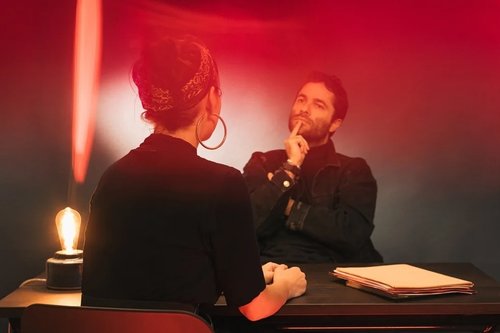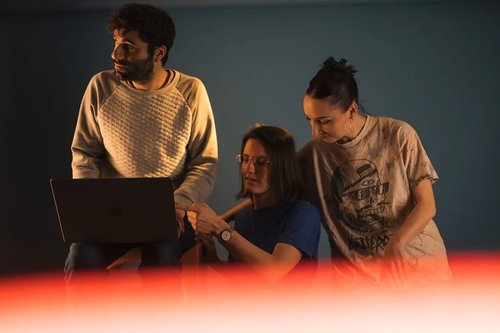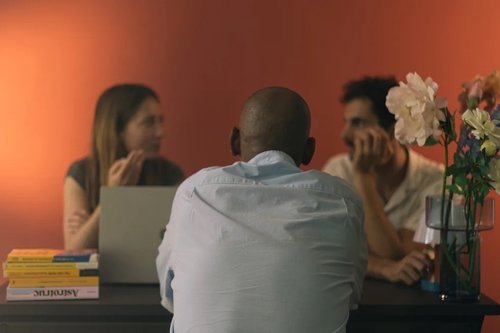Striking the balance: navigating honesty in job interviews
Apr 11, 2023
3 mins


Freelance writer and podcast producer
We’ve all gotten the dreaded interview question “What’s your biggest weakness?” Of course, the experts say this is just an opportunity to spin the conversation to something that’s actually an asset. But what if this—or another—interview question gets you talking about a positive trait that your future employer could exploit? Could bragging about your work ethic lock you into constant unpaid overtime? Or could an offhand comment about your strong personality make your interviewer assume you’re an obnoxious coworker?
We spoke with negotiation expert, Wharton School faculty member, and author of the book Bring Yourself Mori Taheripour to get her guidance on what to share—and what to be more careful of divulging—in the interview process.
Don’t worry, be human
While Taheripour says it’s probably not a great idea to begin your interview by saying, “Here are all the horrible things about me or the mistakes that I’ve made,” there is something to be said for humanizing the hiring process. Says Taheripour, “Conveying that there can be growth, that you’re not coming in like the perfect, perfect person … makes you both more human and also really thoughtful.” And leveraging your answer into an opportunity to highlight why this company and role are a great fit for you could be the cherry on top of a great response. Taheripour suggests framing it something like, “This has been my experience thus far. I love this company because I think it’ll give me the opportunity to grow even more in these areas.”
There’s a human on the other end, too
Taheripour dismissed the idea that interviewers will latch on to positive qualities for later exploitation—mostly because “everybody gets the same kind of coaching,” so statements like “I’ve never taken a sick day,” are taken with a pinch of salt to begin with. What’s more, U.S. unemployment rates are lower than they’d been since 1969. Recruiters are well aware that today’s job seekers have a variety of options and are unlikely to settle for poor company culture.
Be aware of your audience
Though “authenticity” is an aspirational buzzword, Taheripour remarked, “I don’t think that all of us show up all the time for anything” in our world. But that doesn’t mean that you should fabricate a whole new personality or suppress the things that make you you. Instead, she suggests that job seekers tap into their emotional intelligence and adapt to the audience at hand. Based on the verbal and non-verbal information you’re getting from the interviewer, you can choose which attributes to emphasize and which to downplay.
Mindfulness matters
Being present and attuned to your interviewer can make the whole interview more like a conversation and less like a set of pre-rehearsed, tested responses. And it’s a win-win: on the one hand, says Taheripour, it allows the interviewer to feel like they’re being seen as a human being (always a plus!), and on the other hand, it strategically can help you as the interviewee make decisions about what to say next, “because … you’re noticing more things about this person when you sort of really engage deeply with them.”
When to take care
All of this notwithstanding, Taheripour does suggest that pregnant people, or those with significant caretaking responsibilities at home, may want to choose their disclosure moment wisely: “Company culture, I think, dictates a lot of how comfortable you’re going to be doing that.” Although there are laws in the United States forbidding discrimination against pregnant job applicants, not all employers are welcoming of a new hire who may have to take leave soon after their start date. So use the initial conversations with a prospective employer as a sort of assessment of company culture, and consider waiting until you have the right moment and audience to share your status.
Keep your confidence up
It’s understandable for an interviewee to be nervous that they’ll accidentally let something slip that could negatively impact their time at the company. But, says Taheripour, it’s the particularities of your experience that will ultimately land you a job—and your authentic self is part of what got you this far: “Having confidence in yourself gives you the sort of the green light to be more of yourself, because there’s obviously something there that they selected.” It’s highly unlikely that one exchange will color the interviewer’s entire impression of you.
Key takeaways: how honest should you be in an interview?
A job interview can feel like a minefield, but that doesn’t mean you’re destined for failure. To have a successful interview, follow these guidelines:
- Share your areas for growth as well as accomplishments, and make sure to emphasize how you see this role as part of your professional development.
- Be present with your interviewer, so you can make them feel more seen and adjust your own presentation to meet the situation.
- If you are pregnant or have caregiving responsibilities that may affect your availability, choose when to disclose this information based on the company culture.
- Keep your confidence high—this job may be the next step on your professional journey!
Photo: Welcome to the Jungle
Follow Welcome to the Jungle on Facebook, LinkedIn, and Instagram, and subscribe to our newsletter to get our latest articles every day!

More inspiration: Ace your job interview

Why are you leaving your job? Here's how to nail the answer
Caught off guard by 'Why are you leaving your job?' Here's how to flip this tricky question into a spotlight on your goals and potential.
Dec 24, 2024

Standing out in an interview: Creative responses to common questions
Answering common interviews with common responses isn't going to get you far in today's job market. Here's how to truly stand out!
Nov 26, 2024

The Pratfall Effect: Can screwing up in a job interview make you more likable?
Mistakes you make in a job interview could actually work to your advantage ...
Oct 14, 2024

How to bring up your long-term career goals in an interview
Be honest but strategic. The key is aligning your goals with the role while showing flexibility and ambition. Avoid faking it!
Sep 24, 2024

Is honesty the key to discussing your weaknesses?
Are your weaknesses holding you back in an interview? A bit of honesty can flip the script and make your flaws work in your favor.
Aug 21, 2024
The newsletter that does the job
Want to keep up with the latest articles? Twice a week you can receive stories, jobs, and tips in your inbox.

Looking for your next job?
Over 200,000 people have found a job with Welcome to the Jungle.
Explore jobs